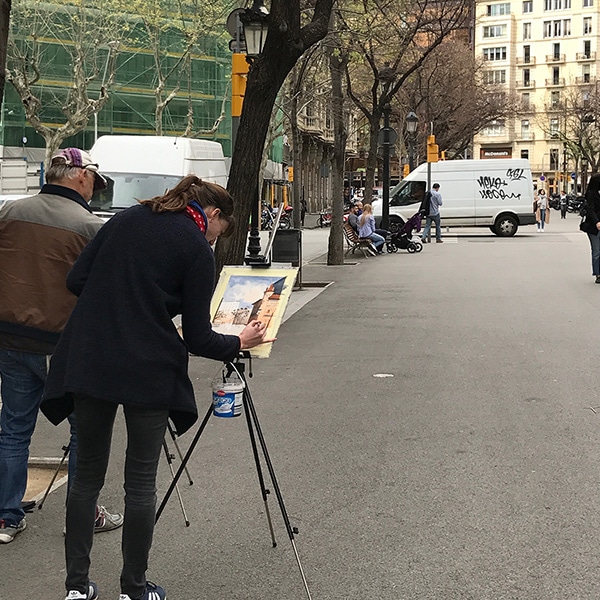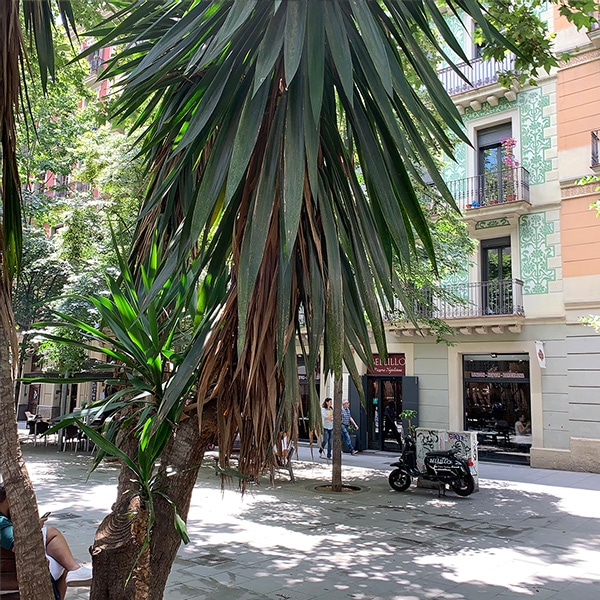Insidious. Unavoidable. Perfectly Natural.
In 2014, the physical appearance of Barcelona began changing even more rapidly. Change was nothing new. The 1992 Olympics, and before that, the “Spain is Different” campaign saw to that. The slogan, “Spain is Different” was dreamed up by Dictator Franco’s Minister of Information Manuel Fraga Iribarne, who is a central figure in Episode 6 and Episode 7 of the Catalunya Barcelona documentary series. And the Olympics themselves, in Episode 8.
But getting back to 2014’s importance: 20+ years after the Olympics, it was the year rent controls was finally lifted. This put the quaint, locally-owned storefronts–grocery stores, fruit stands, cafés–at a crossroads. Pony up or move on. On the one hand, they’d known decades in advance that the date was coming. On the other, if your economic engine is a fruit stand on Rambla de Catalunya or Carrer d’Enric Granados–two of Spain’s most expensive streets–eking out a margin is a stretch, even with decades to prepare.

Five years on, these streets have changed dramatically. New storefronts come and go on Rambla de Catalunya and Carrer d’Enric Granados with relative frequency. European and international holding companies have leased the storefronts, and the mom and pop shops have been replaced by franchises. They all have a sameness to them, a transient strip mall ethos, and, indeed, since they’re stores that snap together, they can be swapped out quickly.
There are more McDonalds, more Taco Bells, more Starbucks. It’s impossible to say this doesn’t diminish the charm of these streets. A Starbucks is not charming. A Starbucks is predictable. A Starbucks is a Starbucks.
Starbucks is a useful example, even if one’s loathe to use it as such–if only because doing so has become a cliche. It’s useful because Starbucks did not fill a void. There has never been a shortage of great coffee in Barcelona. Still, the number of Starbucks in Barcelona continues to increase. Now there are 20, with two on the short Rambla de Catalunya promenade.
Yet, like it or not, this is the natural order of things. A city grows more popular. Property values increase. Rents increase. More residents, more visitors, and more businesses vying to sell goods and services to those residents and visitors.
But getting back to 2014, Attorney Meritxell Campmany, during her interview with the Catalunya Barcelona film team, explained why 2014 is so notable in this regard.

And though we may not like it, though demand tends to make cities, at once more expensive, more overcrowded, and, simultaneously, more boring, it’s hard to do anything to stop it, because it’s difficult to identify a villain. Salaries in Spain are low. Many of the people, the property owners, whose buildings are being gobbled up and spun off as commercial entities are far from wealthy. Often, it’s a building that’s been in the family for generations, and owing to location, its value has taken a quantum leap.
And who can blame them for selling, or agreeing to jack up the rent, disrupting tenants’ lives, and forcing mom and pop storefronts to shutter their doors?
When someone offers you a sum–often a life-changing sum–that will improve the welfare of your entire family, it’s hard to say, “No,” and drawing on the better angels of our nature, forgoing such an offer to “preserve the neighborhood’s authenticity” takes an iron will and a martyr’s piety.